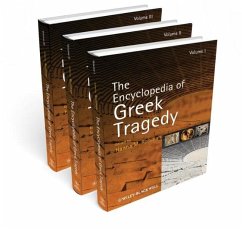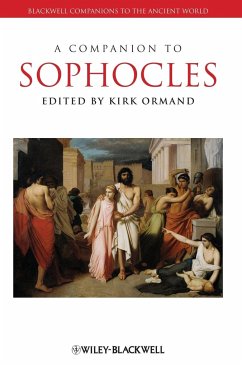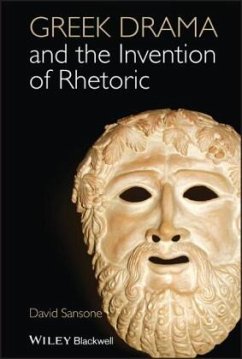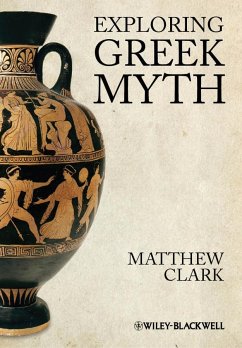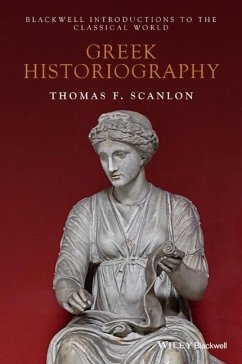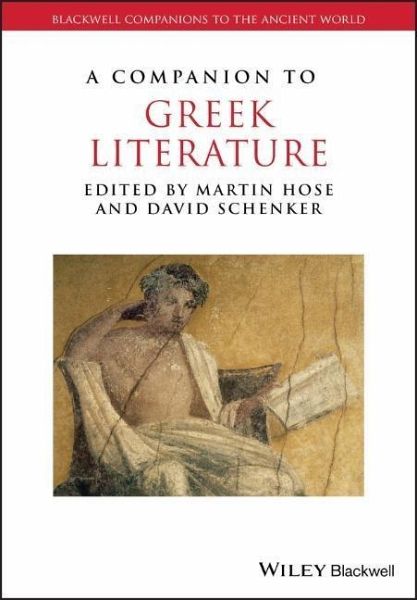
A Companion to Greek Literature
Versandkostenfrei!
Versandfertig in über 4 Wochen
54,99 €
inkl. MwSt.
Weitere Ausgaben:

PAYBACK Punkte
27 °P sammeln!
A Companion to Greek Literature presents a comprehensive introduction to the wide range of texts and literary forms produced in the Greek language over the course of a millennium beginning from the 6th century BCE up to the early years of the Byzantine Empire._ Features contributions from a wide range of established experts and emerging scholars of Greek literature_ Offers comprehensive coverage of the many genres and literary forms produced by the ancient Greeks--including epic and lyric poetry, oratory, historiography, biography, philosophy, the novel, and technical literature_ Includes read...
A Companion to Greek Literature presents a comprehensive introduction to the wide range of texts and literary forms produced in the Greek language over the course of a millennium beginning from the 6th century BCE up to the early years of the Byzantine Empire.
_ Features contributions from a wide range of established experts and emerging scholars of Greek literature
_ Offers comprehensive coverage of the many genres and literary forms produced by the ancient Greeks--including epic and lyric poetry, oratory, historiography, biography, philosophy, the novel, and technical literature
_ Includes readings that address the production and transmission of ancient Greek texts, historic reception, individual authors, and much more
_ Explores the subject of ancient Greek literature in innovative ways
_ Features contributions from a wide range of established experts and emerging scholars of Greek literature
_ Offers comprehensive coverage of the many genres and literary forms produced by the ancient Greeks--including epic and lyric poetry, oratory, historiography, biography, philosophy, the novel, and technical literature
_ Includes readings that address the production and transmission of ancient Greek texts, historic reception, individual authors, and much more
_ Explores the subject of ancient Greek literature in innovative ways








